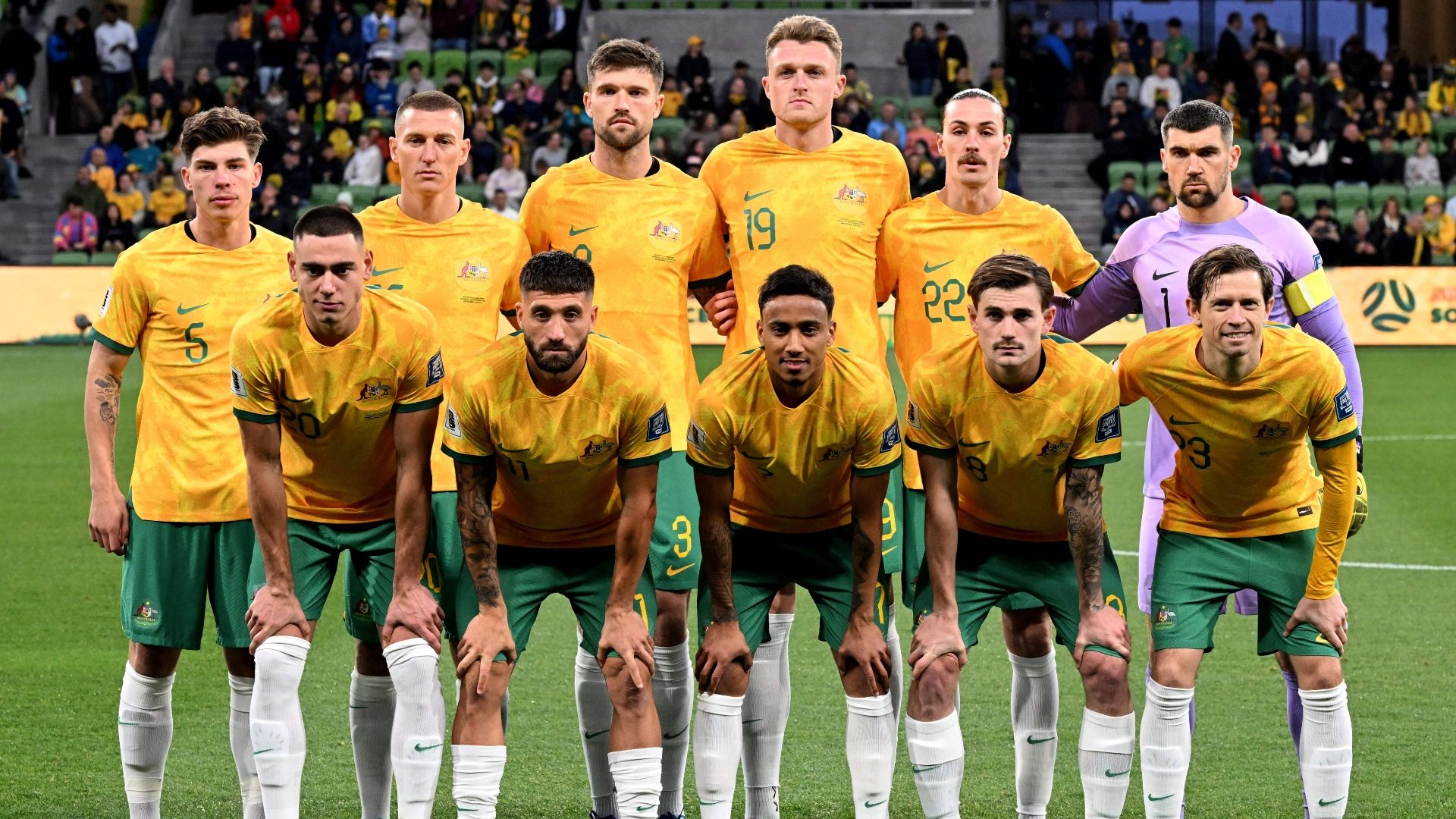The FIFA World Cup is a quadrennial tournament that presents an opportunity for teams to showcase their talent on the national stage. Be it Siphiwe Tshabalala's thunderous strike at the 2010 World Cup or Croatia's fairytale run in Russia, the World Cup gives nations an opportunity to put their names on the world map. And one such team is Australia who have shown signs of progress at the showpiece event.
On the back of a scinitllating group stage performance, Australia earned themselves a spot in the Round of 16 of the FIFA World Cup 2022 were they faced eventual winners Argentina. Despite being dumped out of the competition by Messi's La Albiceleste, Australia proved to the world why they are a team to watch out for in the near future.
Australia have been one of the most successful sides coming out of the Oceania Football Confederation, so successful that they had to switch confederations for better competition and higher value.
While the nation has improved significantly in the past decades, it is rare for a country to switch continents and GOAL explains why Australia actually switched from the OFC to the AFC.
Why did Australia switch to the AFC?
Australia were part of the Oceania Football Confederation but were constantly left frustrated because they failed to qualify for the FIFA World Cup due to their ranking in the OFC. Despite being the strongest team in the OFC by a mile, FIFA never guaranteed them an automatic spot in the FIFA World Cup as the winner of the Oceania zone only receives a 0.5 for the showpiece event meaning the Socceroos had to constantly take part in the intercontinental play-offs.
In 1966 North Korea dumped them out of contention in the play-offs, Israel defeated them in 1970, and Scotland hurdled over them in 1986. Their disastrous streak in the play-offs continued as Argentina defeated them in 1994 followed by Iran in 1998 and Uruguay in 2002.
They did manage to reach the 1974 FIFA World Cup in West Germany but then missed seven straight tournaments dampening their dreams of making it to the biggest footballing carnival.
With Australia constantly failing to cross the playoffs hurdle, the country decided to switch to the Asian Football Confederation as they would be guaranteed an easier playoffs route and also garner higher marketing opportunities featuring in the AFC.
As a result, in 2005 Australia resigned from the OFC and decided to join the AFC as they submitted a request to FIFA which was approved by the governing body and since then they have featured in every World Cup finals ( 2006, 2010, 2014, 2018, and 2022).
What are the rules of switching confederations in FIFA?
Australia submitted an official request in 2005 and just one year later former FIFA President Sepp Blatter accepted the nation's request allowing them to switch confederations.
According to the rules, three major conditions are to be met if any country wants to switch their confederations which are listed below
- FIFA approves the move
- There is no objection from countries already in the zone
- The expected region endorses the nation
Australia met all these requirements and were officially welcomed to the AFC while the Socceroos' departure from the OFC benefitted that region as well.
According to Blatter, "All the participants were happy with the move and this being the case, the executive committee approved it under the statutes."
How Australia's switch benefitted the OFC and the AFC?
Australia's switch from the OFC was seen a positive move for all the three parties - Australia, the Oceania Football Confederation, and the Asian Football Confederation.
During their stint in the OFC, Australia usually fielded one of their strongest side's in their history with players playing in leagues across Europe but still the nation failed to earn a ticket to the FIFA World Cup. The minute they switched continents, the route to the bejewelled event became considerably easy while the nation also garnered massive marketing opportunities.
For the Oceania Football Confederation, Australia's departure opened the doors for other teams to earn a spot in the intercontinental playoffs and not make the OFC a one horse race. For example, New Zealand earned a ticket to the 2010 World Cup while Fiji were present at the 2016 Olympics. Australia's resignation opened the doors for other nations to step up their respective games, helping them cement themselves on football's map.
Blatter suggested "The Oceania delegates have thought for many years that Australia was too powerful and blocked the way of the other 11 countries. Now New Zealand, and the Pacific islands at least have a chance. They can go it alone, I am sure it will be a success."
Lastly, the AFC also had a positive outlook towards Australia joining their confederation. First of all, numerous Australian players still play in Europe, which meant that the Asian players were able to compete with players who had better playing style and physiques, upping their game.
Australia's entry in the AFC also added massive competition considering how strong the footballing nation is, which helped the other countries to strengthen their football presenting a bigger challenge which could have been helpful for them.
.jpg?auto=webp&format=pjpg&width=3840&quality=60)